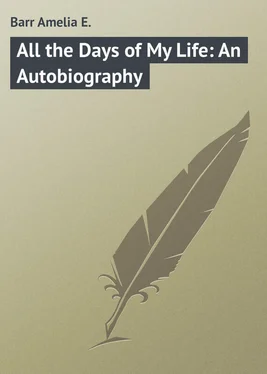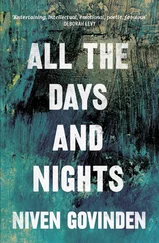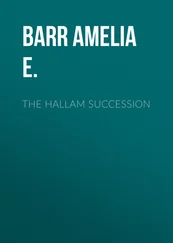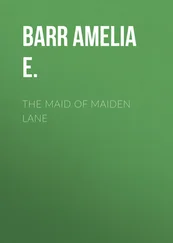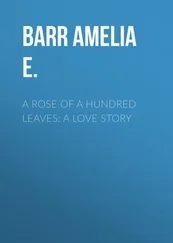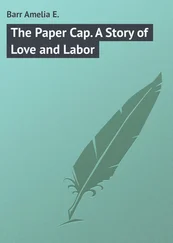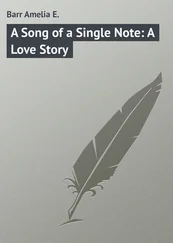Amelia Barr - All the Days of My Life - An Autobiography
Здесь есть возможность читать онлайн «Amelia Barr - All the Days of My Life - An Autobiography» — ознакомительный отрывок электронной книги совершенно бесплатно, а после прочтения отрывка купить полную версию. В некоторых случаях можно слушать аудио, скачать через торрент в формате fb2 и присутствует краткое содержание. Жанр: foreign_prose, foreign_language, на английском языке. Описание произведения, (предисловие) а так же отзывы посетителей доступны на портале библиотеки ЛибКат.
- Название:All the Days of My Life: An Autobiography
- Автор:
- Жанр:
- Год:неизвестен
- ISBN:нет данных
- Рейтинг книги:5 / 5. Голосов: 1
-
Избранное:Добавить в избранное
- Отзывы:
-
Ваша оценка:
- 100
- 1
- 2
- 3
- 4
- 5
All the Days of My Life: An Autobiography: краткое содержание, описание и аннотация
Предлагаем к чтению аннотацию, описание, краткое содержание или предисловие (зависит от того, что написал сам автор книги «All the Days of My Life: An Autobiography»). Если вы не нашли необходимую информацию о книге — напишите в комментариях, мы постараемся отыскать её.
All the Days of My Life: An Autobiography — читать онлайн ознакомительный отрывок
Ниже представлен текст книги, разбитый по страницам. Система сохранения места последней прочитанной страницы, позволяет с удобством читать онлайн бесплатно книгу «All the Days of My Life: An Autobiography», без необходимости каждый раз заново искать на чём Вы остановились. Поставьте закладку, и сможете в любой момент перейти на страницу, на которой закончили чтение.
Интервал:
Закладка:
Barr Amelia E.
All the Days of My Life: An Autobiography / The Red Leaves of a Human Heart
This is to be a book about myself but, even before I begin it, I am painfully aware of the egotistical atmosphere which the unavoidable use of the personal pronouns creates. I have hitherto declared that I would not write an autobiography, but a consideration of circumstances convinces me that an autobiography is the only form any personal relation can now take. For the press has so widely and so frequently exploited certain events of my life – impossible to omit – that disguise is far out of the question. Fiction could not hide me, nor an assumed name, nor even no name at all.
Why, then, write the book? First, because serious errors have constantly been published, and these I wish to correct; second, there has been a long-continued request for it, and third, there are business considerations not to be neglected. Yet none, nor all of these three reasons, would have been sufficient to induce me to truck my most sacred memories through the market-place for a little money, had I not been conscious of a motive that would amply justify the book. The book itself must reveal that reason, or it will never be known. I am sure, however, that many will find it out, and to these souls I shall speak, and they will keep my memory green, and listen to my words of strength and comfort long after the woman called Amelia Huddleston Barr has disappeared forever.
Again, if I am to write of things so close and intimate as my feelings and experiences, I must claim a large liberty. Many topics usually dilated on, I shall pass by silently, or with slight notice; and, if I write fully and truly, as I intend to do, I must show many changes of opinion on a variety of subjects. This is only the natural growth of the mental and spiritual faculties. For the woman within, if she be of noble strain, is never content with what she has attained; she unceasingly presses forward, in lively hope of some better way, or some more tangible truth. If any woman at eighty years of age was the same woman, spiritually and mentally, she was at twenty, or even fifty, she would be little worthy of our respect.
Also, there are supreme tragedies and calamities in my life that it would be impossible for me to write down. It would be treason against both the living and the dead. But such calamities always came from the hand of man. I never had a sorrow from the hand of God that I could not tell to any good man or woman; for the end of God-sent sorrow is some spiritual gain or happiness. We hurt each other terribly in this world, but it is in ways that only the power which tormented the perfect man of Uz would incite.
I write mainly for the kindly race of women. I am their sister, and in no way exempt from their sorrowful lot. I have drank the cup of their limitations to the dregs, and if my experience can help any sad or doubtful woman to outleap her own shadow, and to stand bravely out in the sunshine to meet her destiny, whatever it may be, I shall have done well; I shall not have written this book in vain. It will be its own excuse, and justify its appeal.
AMELIA BARRCHAPTER I
THE BORDER LAND OF LIFE
“Date not God’s mercy from thy nativity, look beyond to the Everlasting
Love.”
“Ask me not, for I may not speak of it – I saw it.” – Tennyson.
I entered this incarnation on March the twenty-ninth, A.D. 1831, at the ancient town of Ulverston, Lancashire, England. My soul came with me. This is not always the case. Every observing mother of a large family knows that the period of spiritual possession varies. For days, even weeks, the child may be entirely of the flesh, and then suddenly, in the twinkling of an eye, the mystery of the indwelling spirit is accomplished. This miracle comes not by observation; no mother ever saw it take place. She only knows that at one moment her child was ignorant of her; that at the next moment it was consciously smiling into her face, and that then, with an instinctive gladness, she called to the whole household, “the baby has begun to notice.”
I brought my soul with me – an eager soul, impatient for the loves and joys, the struggles and triumphs of the dear, unforgotten world. No doubt it had been aware of the earthly tabernacle which was being prepared for its home, and its helper in the new onward effort; and was waiting for the moment which would make them companions. The beautifully fashioned little body was already dear, and the wise soul would not suffer it to run the risks of a house left empty and unguarded. Some accident might mar its beauty, or cripple its powers, or still more baneful, some alien soul might usurp the tenement, and therefore never be able effectually to control, or righteously use it.
I was a very fortunate child, for I was “possessed by a good spirit, yea rather being good, my spirit came into a body undefiled and perfect” (Wisdom of Solomon, 8:20). Also, my environments were fair and favorable; for my parents, though not rich, were in the possession of an income sufficient for the modest comforts and refinements they desired. My father was the son of Captain John Henry Huddleston, who was lost on some unknown sea, with all who sailed in his company. His brother, Captain Thomas Henry Huddleston, had a similar fate. His ship, The Great Harry , carrying home troops from America, was dashed to pieces on the Scarlet Rocks, just outside Castletown, the capital of the Isle of Man. When the storm had subsided the bodies of the Captain and his son Henry were found clasped in each other’s arms, and they were buried together in Kirk Malew churchyard. During the years 1843 and 1844 I was living in Castletown, and frequently visited the large grave with its upright stone, on which was carved the story of the tragedy. Fifteen years ago my sister Alethia went purposely to Castletown to have the lettering on this stone cleared, and made readable; and I suppose that it stands there today, near the wall of the inclosure, on the left-hand side, not far from the main entrance.
When my grandmother, Amelia Huddleston, was left a widow she had two sons, John Henry and William Henry, both under twelve years of age. But she seems to have had sufficient money to care well for them, to attend to their education, and to go with them during the summer months to St. Ann’s-by-the-Sea for a holiday; a luxury then by no means common. She inspired her sons with a great affection; my father always kept the anniversary of her death in solitude. Yet, he never spoke of her to me but once. It was on my eleventh birthday. Then he took my face between his hands, and said: “Amelia, you have the name of a good woman, loved of God and man; see that you honor it.”
After the death of their mother, I believe both boys went to their uncle, Thomas Henry Huddleston, collector of the port of Dublin. He had one son, the late Sir John Walter Huddleston, Q. C., a celebrated jurist, who died in 1891 at London, England. I was living then at East Orange, New Jersey. Yet, suddenly, the sunny room in which I was standing was thrilled through and through by an indubitable boding token, the presage of his death – a presage unquestionable, and not to be misunderstood by any of his family.
Sir John Walter was the only Millom Huddleston I ever knew who had not “Henry” included in his name. This fact was so fixed in my mind that, when I was introduced to the one Huddleston in the city of New York, a well-known surgeon and physician, I was not the least astonished to see on his card “Dr. John Henry Huddleston.” Again, one day not two years ago, I lifted a newspaper, and my eyes fell on the words “Henry Huddleston.” I saw that it was the baptismal name of a well-known New Yorker, and that he was seriously ill. Every morning until his death I watched anxiously for the report of his condition; for something in me responded to that singular repetition, and, though I never heard any tradition concerning it, undoubtedly there is one.
Читать дальшеИнтервал:
Закладка:
Похожие книги на «All the Days of My Life: An Autobiography»
Представляем Вашему вниманию похожие книги на «All the Days of My Life: An Autobiography» списком для выбора. Мы отобрали схожую по названию и смыслу литературу в надежде предоставить читателям больше вариантов отыскать новые, интересные, ещё непрочитанные произведения.
Обсуждение, отзывы о книге «All the Days of My Life: An Autobiography» и просто собственные мнения читателей. Оставьте ваши комментарии, напишите, что Вы думаете о произведении, его смысле или главных героях. Укажите что конкретно понравилось, а что нет, и почему Вы так считаете.
